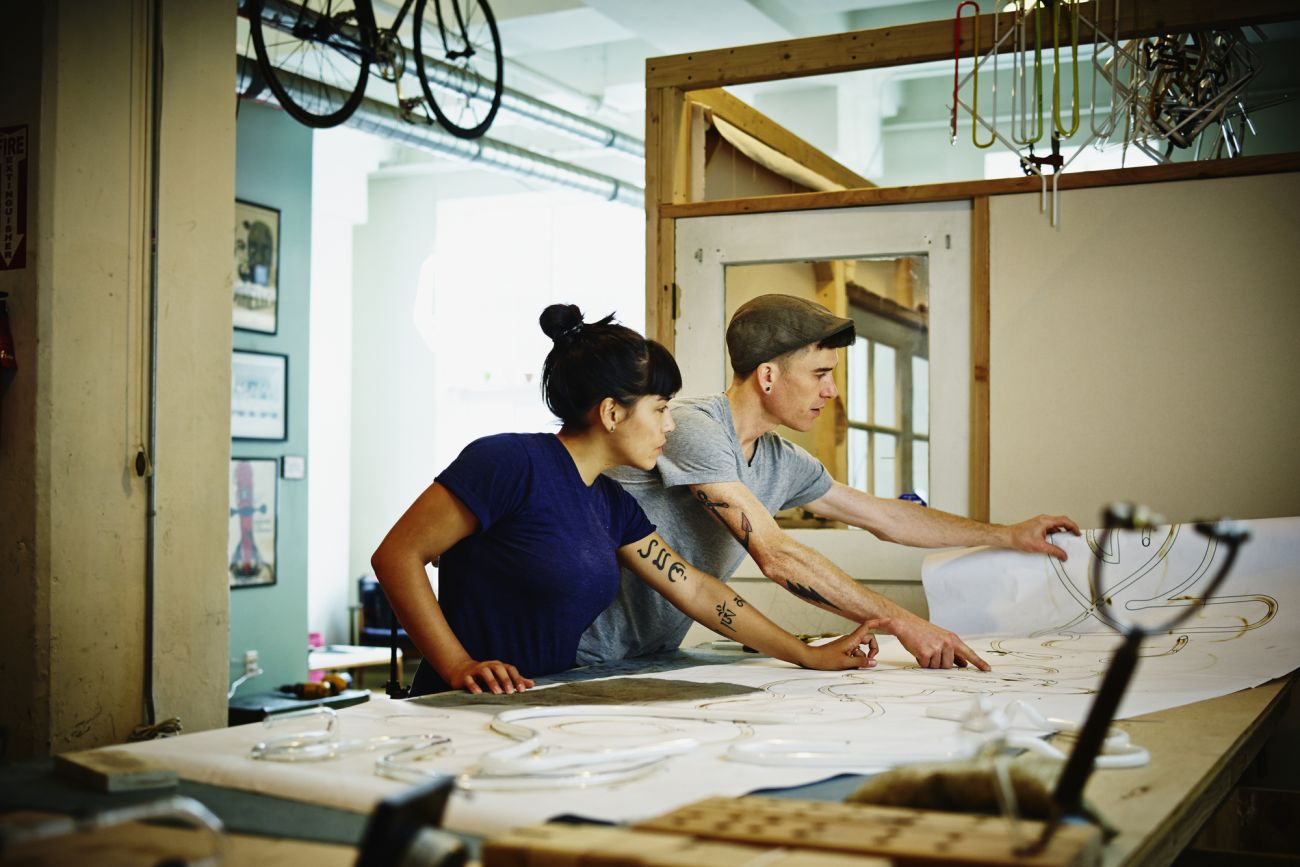
Marlo Hunter discusses the life of a freelance artist.
4 min read
Opinions expressed by Entrepreneur contributors are their own.
On this episode of the Thought Talk Podcast, I speak with Marlo Hunter, successful New York director, choreographer and now co-creator and founder of The Theatrical Culinary Project, an immersive play in development with chef Carla Hall from The Chew.
Hunter also coaches creative entrepreneurs on how to make the freelance life work from a business perspective. In this epidsode of the Thought Talk podcast, Hunter shares her own journey as a freelance artist as well as some of the challenges creative entrepreneurs face — and what they can do about them.
Find the gap and fill it.
Being an entrepreneur takes a certain kind of fortitude, but being a creative entrepreneur brings some additional challenges. When the economy took a dip in 2009, Hunter, a director and choreographer, found herself without a creative job and with no supplemental income.
“Before I entered into this lifestyle, I wish somebody had collected for me all the tools — mentally, emotionally and practically — that I needed to be able to weather a freelance creative career successfully,” jokes Hunter.
So Hunter did what all entrepreneurs who see a gap do — she filled it. “I sat down and, in a week, I wrote an entire book, which I called The Freelance Artist’s Manifesto,” says Hunter.
Central to Hunter’s tough love message is the idea that if you pick a creative freelance lifestyle, you have to “Pull yourself up by the bootstraps. You don’t have time to navel gaze,” she says. In particular there are three things Hunter says all creative entrepreneurs need to keep in mind.
Remember that ultimately, you have control over your perspective.
“There are so many things that you cannot control in a freelance life,” says Hunter. “You and I could land in New York on the same day, get the same internship right out of the gate, and our careers will not look alike in any way, fifteen years down the line. You can’t spend your time ogling other people’s careers.”
Hunter believes that freelancers who really embrace the notion that all they can focus on is their entrepreneurial path and how they choose to view it are the most successful. Yes, you may have been rejected, not gotten the gig you wanted, or had a rehearsal that went badly, but you have full control over the way you are going to view those circumstances and how you are going to use them to move yourself forward.
Accept that your life is not compartmentalized.
Hunter says that the difference between freelancers and what she calls “civilians” is that creative entrepreneurs don’t have lives that are compartmentalized. “We are our work,” says Hunter. “There is no such thing as leaving the office and coming home and trying to leave your work at the office. You are the office.”
Surround yourself with supportive people who inspire you.
According to Hunter, creative freelancers need to be much more scrupulous about the people they surround themselves with. “As an artist, problems with a friend or family member impact our work on a daily basis and can sap your creative energy,” Hunter says.
At one point, when Hunter’s directorial career was dead in the water, she met Sasha Eden, and together they forged the idea of The Theatrical Culinary Project. “Now, it lives and we’re working towards bringing it to life as I’ve always imagined it. It’s exciting, and it goes to show you that you have to stick with it and find the right people to work with,” says Hunter.
To learn more about Marlo Hunter’s creative entrepreneurial journey and The Theatrical Culinary Project, check out my interview with her on this Thought Talk Podcast episode.
https://www.entrepreneur.com/article/312355

